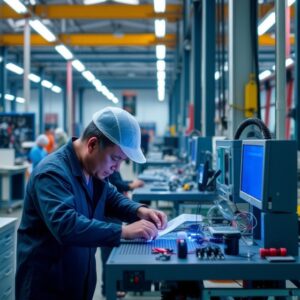Indonesia is witnessing the most transformative journey in its manufacturing sector, driven by technological advancements. From best sourcing to streamlined logistics, technology is changing the face of business. As one of the key players in the Asian economy, Indonesia has positioned itself as a manufacturer. Here’s a dive into how technology is transforming production, supply chain, and the delivery of quality products in the country.
The Digital Revolution of Manufacturing
1. Smart Factories and Automation
Adoption of principles like Industry 4.0 has brought automation, and IoT-enabled devices are found in smart factories that Indonesia is developing. Productivity increases, accuracy is enhanced, and time waste is minimized. Production line automation means better quality as well as less cost operational expenditure.
2. AI and Data Analytics for Efficiency
Through artificial intelligence and data analytics tools, manufacturers can optimize processes, forecast demand, and reduce waste. For instance, insights from data help businesses make informed decisions about best sourcing strategies and inventory management.
Transforming the Supply Chain
1. Digitized Supply Chain Management
Advanced supply chain management software is also being used by businesses to streamline the system and increase transparency. In this context, the complexities of networks for Asia agents and suppliers will be resolved while tracking shipments and inventory real-time, thereby reducing bottlenecks and improving customer satisfaction.
2. Blockchain for Traceability
Blockchain technology is also now increasingly used to improve traceability in the supply chain, hence making it possible to track both raw materials and finished products back to their origin point for maximum trust and compliance with international standards.
Opportunities and Challenges
- Advanced technology enables Indonesian manufacturers to compete globally through quality improvement and cost reduction.
- Technology allows businesses to meet individual customer requirements through flexible modes of production.
- High upfront investment in advanced technologies may be a limitation for small and medium-sized enterprises.
- High upfront investment in advanced technologies may be a limitation for small and medium-sized enterprises.
Conclusion
Technology is driving change in the manufacturing industry in Indonesia. The integration of innovation through automation, AI, and digital platforms helps firms be more efficient, bring in quality products, and increase their competitiveness in a globalized market.
